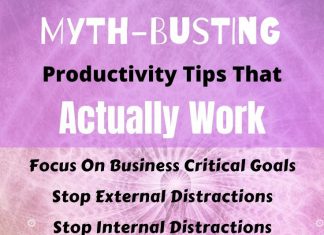Working from home is a true blessing. There are so many real and tangible benefits to working remotely. However, there are a few serious problems that can be easily overcome with a little planning.

1. Pro: Time Saved With Less Commuting
One of my favorite benefits of working from home is the lack of commuting. Removing the commute from your life has many knock-on effects, which will be covered in the following sections.
My local office is approximately a 45-minute drive away. By skipping the commute, I save 90 minutes per day. The average person has roughly 30 days of vacation and public holidays yearly. So, removing the weekends and vacations from the year, we have 230 working days or commute days per year. Let’s guess that your career will span 35 years because you plan to retire early.
This equates to 90 minutes X 230 days X 35 years = 12,075 commuting hours.
This means you could save 503 days of your life, 72 weeks, or 1.3 years.
Removing a typical commute could save you 1.3 years of your life
2. Con: Temptation To Overwork
One of the great things about working from home is zero commute time. That means you can save from one to two hours per day. The problem is you inevitably spend that saved time by working more. I have worked too many hours in the day; in fact, I could not even report my hours in the system because Germany has legal requirements on maximum hours of work, and if I reported them, I would have been breaking the law. So, I worked around it by taking unofficial time off when needed.
What is my point? You should try to create a normal working regime where you start and finish at a specific time and don’t do emails on your phone in bed while ignoring your partner, you loser. 🙂
3. Pro: Lower Carbon Footprint
Not only do you save over a year of your life while not commuting, but you also can have a good conscience about the environment if you drive 30 miles per day to work, which equates to 241,500 miles in your career.
According to Carbonfootprint.com, in the scenario above, if your commute were 30 miles per day (48 kilometers), you would increase the world’s CO2 emissions by 55.5 metric tons. So you would save 55.5 metric tons of CO2 over your career.
You may save 55.5 tons of CO2 emissions over your career.
If you still commute, you must plant five trees and have them working full-time for 40 years to absorb that amount of CO2.

"When You Stop Learning, You Stop Living" SkillShare Makes Learning Easy. Skillshare Is Our #1 Rated Learning Platform With Great Lessons On:★★★★★ Creating: Photography, Film-Making, Music, Graphic Design & Coding ★★★★★ Building: Leadership, Communication, Entrepreneurship & Marketing ★★★★★ Thriving: Personal & Professional Development, Productivity, Time Management "Skillshare is like Netflix for learning. I take a course every time I need a new skill. With over 30,000 courses to choose from, I always have something to learn." Barry D. Moore - Founder: GreatWorkLife.com |
4. Con: Scattered Working Hours
If you want the joy of the flexibility that telecommuting offers, you may end up scattering your working hours across the day. For example, you may want to take a few hours off at lunchtime to prepare food for the children or deliver your kids to their sports clubs.
That flexibility means you must work late in the evening or get up much earlier in the morning to compensate. The flexibility outweighs the scattered working hours, but it is still something you need to consider.
5. Pro: Decreased Commuting Costs
Not only will it save time and the environment, but you will save money, too. It costs you 60.8 cents per mile on average, according to the AAA in a 2017 report. Traveling 30 miles daily, 230 days per year over 35 years, will save you $164,200. Yes, you read it correctly. I double-checked the math on it; it’s true.
You will save $264,220 dollars over your career by not commuting
6. Con: A Less Structured Daily Regime
As the old sayings go, “Humans are creatures of habit” or “People need structure to thrive.” There is some truth in these proverbs, so you must recognize that working virtually or remotely may not be for you if you are a creature of habit or need a fixed work-life structure.
“It sounds crazy, but to be truly flexible you actually need discipline”
This means that adopting a flexible approach to your working hours and your life requires deep discipline to achieve your working goals. If that means working late into the night because you took time out in the afternoon, then do it. Commit to delivering your goals and be flexible about what time of the day you do that, and you will be fine.
7. Pro: Lower Chance Of A Motor Accident
According to the Federal Highway Commission, the average number of miles per car accident for the average US driver is 165,000. In our example of 30 miles per day, you would cover 241,500 miles.
This means you would avoid one car accident in your lifetime. Also, 1 in 77 car accidents is fatal, so that means it is undeniably better to telecommute than really commute.
8. Con: Finding Space For A Home Office
Ideally, you should have a part of the house that is separated by a door, and the door is lockable. In a large corporation, working across organizations and functions, 99% of people do not know you work from home. Home workers are considered less serious than those who drive into an office.
There is no reason to broadcast that you work from home. Don’t talk about it; get the job done. A dog barking or your child screaming gives the game away, and you will not be taken seriously after that.
Make sure you have a private room. We all know the phenomenon: you’re on a conference call, and someone is working from home in the kitchen, where you can hear a crying baby or the wail of police sirens. To maintain the air of professionalism during meetings, you need a quiet, private room with no disruptions.
You must dedicate a part of your house to this, which will take space away from your family.
9. Pro: Decreased Stress
Working from home also decreases stress in two ways. Firstly, you do not have the stress of commuting to work in the morning. Secondly, you do not encounter the high levels of stress involved in personality clashes or workplace politics.
If you need to take a break or have a power nap to freshen your mind, you can do so because you have more flexibility. No prying eyes are watching your every move and judging you like in the office; that is stress relief.
10. Con: Less Human Time With Your Team
Now, one of the biggest drawbacks is the human connection. There are no workarounds for this. Being in the office means you will, over time, develop relationships with certain people that turn into friendships. You will even have professional relationships where you gain a mentor or someone to bounce off your work issues. This does not happen for telecommuters, or the opportunities are far fewer.
11. Pro: Increased Flexibility
One of the great benefits of working from home is that you can also do everything outside the house at off-peak Times:
- Visiting the doctor at 11 am is 15 minutes of waiting – at 5 pm, 90 minutes.
- Go Food Shopping at 9 am no queue 20 minutes – at 6 pm long queues 1 hour.
All appointments during the week are so efficient during working hours you can save months of wasted time, which you can make up earlier or later in the day.
12. Con: Less Movement Impacts Health
If you wear a fitness tracker watch or use your phone to track your steps, you will know your goal is usually 10,000 steps for the day; then, you are successful.
That is great for normal office workers; most people can achieve that without thinking. You get up, make breakfast, walk to your car, drive to work, walk around the office, walk to lunch, and walk to meetings slowly, but surely you can, with a little effort, get to 10,000 steps.
As a home worker, this is not the case. You take 50 steps and are at the office; you do not walk to meetings. A big expedition for you is to walk to the coffee machine in your kitchen.
This is a serious problem. Ten thousand steps are not a target for fit people; they target human beings not to rust up their joints.
If you work from home, you need to exercise to minimize the impact on your health.
13. Pro: A More Flexible Approach To Exercise
If you telecommute, you need to exercise. But the joy is that whenever you have a gap in your agenda, you can jump into your shorts and run for 30 minutes. Do 45 minutes of jogging, and you will hit 10,000 steps.
If you need to clear your head, go for a walk, or take your next meeting on your phone with a Bluetooth headset while walking in the sunshine. It is all possible: technology is your friend.
14. Con: Overdependence On Technology
A serious downside to telecommuting full-time is a dependence on technology. If your broadband is down, you cannot work effectively. If your laptop hard disk fails, you may be out for a few days and must drive to technical support hundreds of miles away to fix it.
Choose a high-quality internet service provider (ISP), and use the cloud to back up your important documents. Have email and Skype on your phone so that even if your office hardware fails, you can still attend meetings and access documents via your phone over 4G.
15. Pro: Increased Work Presence
If you work in a geographically spread team across different time zones, your work presence can actually increase even though you are not in the office. But how is this possible?
When you work remotely in the office, you can schedule your time according to business needs. For example, my team was spread from Australia to Costa Rica everywhere. For example, my teammates in the Philippines would start to work much later in the day to work with me in Europe and our colleagues in the USA. If they had strictly abided by local office hours, I would have only had a few hours to work with them during my working day.
Additionally, my team in the USA would routinely start work at 6 am to catch a bigger time window with Europe and some time with Asia. They were more present across the globe than if they were in the office.
16. Con: Increased Electricity Bills
Logically, being in a state of permanent telecommuting, your electricity and heating bills will increase. The lighting, power for your laptop and screens, and perhaps in summer, your air conditioner.
Your costs will undoubtedly increase, but they will hardly be noticed and will be completely offset by the huge savings in your commuting costs.
 Audiobooks Are Food for the Mind Inspiration, Education & Relaxation Have you discovered the joy of listening?★★★★★ Audible: Review Winner - Best for Price, Library Size & Original Content. ★★★★★ Blinkist: Review Winner - Best Audiobook Summary Service. ★★★★ Audiobooks.com: Best For Unlimited Audiobook Listening. "As a 10-year member of Audible, I have a library of 300+ audiobooks. The best thing is, with a few clicks, I can return any book within 12-months. I also subscribe to Blinkist; with 5,000 15-minute audio-summaries, I can consume knowledge and learn new concepts fast." Barry D. Moore - Founder: GreatWorkLife.com |
17. Pro: Improved Ability To Manage Children & School
We have all been there. You are in a meeting at work, and you get the call from the school your child is sick and you need to pick them up. It is easy when you work from home because you are close to school, but very difficult when you work in the city, and your commute is one hour. Add to this the fact that when they are sick at home, you can check in on them regularly and still deliver your working goals.
Also, it is much easier when it comes to your child’s extracurricular activities. For example, I need to drive my daughter to the gymnastics club twice weekly and her saxophone lesson once weekly. I also take my son to his golf lessons weekly. It is all manageable when you have a flexible work-from-home regime.
18. Con: Loneliness Or Isolation
My mother used to say, “I am just talking to myself until I get used to the people,” or “The more people I meet, the more I like my dog.”
In some ways, working remotely means being more isolated and encountering fewer social situations than in the office. I cannot stress this enough: If you are a super social animal who craves contact with people face to face and in person, then teleworking is not for you. You can, however, counter this missing social aspect of your life by joining local clubs and meetups and ensuring you cultivate a close group of friends locally.
19. Pro: More Family Time
If you have a family, one of the great benefits of teleworking is that you are closer to your children. I am here to make my two little ones breakfast in the morning, and when they get home, I have lunch ready for them. So, we eat at least two meals per day together. When my wife arrives home, we have dinner together. Due to my flexibility, I can work in the evenings to make up for the time lost, making food and fooling around with my kids.
20. Con: Ability To Maintain Discipline
As a rule, I only allowed my staff to work from home if they demonstrated self-discipline. If you cannot be disciplined in your work, it will become evident when working from home. Constantly late for meetings, missing deadlines, or even a lack of preparation for projects or meetings are all telltale signs that you do not have the discipline to self-regulate your work without your manager looking over your shoulder.
21. Pro: Time Saved Preparing For Work
You know the routine: wake up, brush your teeth, shower, shave, do your hair, select your clothes, get dressed, grab a coffee, and leave early to avoid the main rush hour. All of these activities take time. When you are a telecommuter, that time is radically reduced. You can even reduce your prep time to “wake up, brush teeth, grab a coffee.” That means unshowered, unshaven, and working in your pajamas, but each to their own.
I have read advice on other websites, such as, “For psychological reasons, prepare yourself every day like you are going into the office.” But that is crazy; I will not splash on aftershave and wear a suit to work from home. At least for me, getting into work mode is as simple as firing up the laptop, logging in, and attending my first meeting.
As one of the global leaders at Hewlett Packard, I often had to present remotely at our virtual “all-employee meeting” in the US time zone. That meant being ready to present at 5 am. Here was my routine: get up at 4:30 am, brush my teeth, throw on shorts and a T-shirt, grab a cup of tea and coffee, log in by 4:45 am, and present at 5:05 am. Happy days, and no suit required.
22. Con: No Face To Face Chats At The Water Cooler
If you enjoy randomly talking to and making new acquaintances in the office, also known as water-cooler moments, then be prepared, as this does not happen for telecommuters. You simply do not randomly call someone and chat with them about the weather when working from home.
23. Pro: Healthier Eating At Home
Another hidden benefit of working from home is that you do not need to eat the pig swill from the work canteen. I am English, but I live and work in Germany. What I do know is that if you like schnitzel, sausage, bread, and potatoes, you are well looked after here in the land of sauerkraut. I have eaten in work cafeterias in New York, Texas, Cupertino, Bulgaria, Slovakia, Singapore, Malaysia, India (that was an experience), and London, and they are all the same. Only one place had great food: the canteen in Lyon, France, which featured red wine and Boeuf Bourguignon.
24. Con: No Office Parties Or Work Night Outs
If you are working far away from the office, or if your head office is in another country, you will miss out on the Christmas party or the leaving celebration of a colleague. If this matters to you, then do not telecommute.
25. Pro: Fewer Distractions
If you need much of what I call “think time” in your work, working from home can be a huge win.
For example, let’s say you need to plan out the foundation for a huge project you have been tasked with. Doing it right takes a lot of thinking. You need to get in the zone, and when you are in the deep thinking zone, you are at your peak levels of thought and abstraction. Every time you get distracted in the office, it drags you back into the real world, you lose your train of thought, and it takes time to get productive again.
Working remotely, you can simply turn off instant messaging and your email, and you are free to explore the depths of your mind.
26. Con: Decreased Promotional Prospects
I firmly believe that if you consistently deliver your objectives on time in the right way and collaborate and coach your team members, you are automatically considered for promotion. However, the fact remains that if you are not in the office in person, this may impact a part of the relationship-building process that sets the groundwork for promotion.
To combat this, increase your usage of video conferencing or web conferencing for important meetings. Also, try to get to the office regularly so you get that feeling of belonging and that people can put a face to a voice and a personality to your name.
27. Pro: Higher Pay
There is a widely held belief that working from home means you will get a lower salary. While it may be true that if you have a low-skilled work-from-home job, you may receive a minimum wage, but for a skilled worker, the opposite is true.
For example, research at Flexjobs suggests that a freelance software developer can earn even more than someone who works full-time in the office.
In my personal situation working as a corporate transformation leader, I found no impact on my salary; quite the opposite.
Summary: The Pros & Cons of Working From Home
Focus on your goals. Even as a remote worker for 15 years, I managed to get promoted four times to director level. How? Always deliver on your targets, stay disciplined, and focus. Additionally, learn a great Zoom/Microsoft Team manner and smile when you talk; it makes a difference.
Did you enjoy this post, then share it and leave a comment below?


















The pandemic has changed the way people live their lives. People were forced to sit at home to prevent the spread of the virus. This popularized the idea of working from home. Since last year, many companies are still continuing with the work from home concept. Moreover, some companies have made this work from home concept permanent. This article has greatly listed the pros and cons of working from home.
Hello, Barry.
Excellent article on remote working!!
As we’re on the subject, there’s this wonderful article I saw the other day about how, as a result of the COVID-19 pandemic lockdown, practically everyone who is currently working has experienced some type of remote work.
However, changing decades-old working techniques and habits is rarely easy. As you mentioned in your blog, finding the ideal work-life balance is difficult. I’m attaching the link to that article for anyone interested in learning some remote working tips, tricks, and hacks: https://www.skuad.io/blog/remote-working-13-secret-tips-nobody-told-you-about/
For me the biggest advantages of working from home is saving time, freedom (to a degree, at least), ability to do private stuff in the times I wouldn’t be able to do if I worked in the office. The disadvantages, however, are there too. For example, it happens that I work longer. One more little task before I finish, one more mail, one more phone call, and it appears that all together it took an hour. Another issue might be a collaboration with your team. There are some projects that you can’t carry on with if you’re not sure what happened when you weren’t working. To solve that problem, my team uses kanbantool.com . Thanks to it, we see right away who did what, we can also leave comments to make sure everything is clear. It helps to avoid confusion and work overlap.
Hi Amanda, thanks, I see a lot of people use Kanbantool. Barry
Hello, I currently work part-time and care full time for my only child. I am losing my drive for my job and how the company I work for runs their business. My enthusiasm for my job depletes more every day. I very much want to put in my two week notice, find a stay at home job and call it a day and move on. How do I go about finding a stay at home job before I leave my current one? I also am concerned with how I would get paid by the company that hires me to work from home or if I am being scammed out of a paycheck unlike my current job? Please leave any advice for this full time mom and part time employee.
Hi J, thanks for the message. My advice here would be to search for a job with an established company. This should help ease your worries about getting paid. Check companies out on http://www.glassdoor.com to get feedback from current or ex-employees of that company.
Barry
Con:
Managers may feel more comfortable working with the people whom they’ve worked with in person and pay less attention to those whom they’ve only worked with online.
Con:
Reduced ability to gain news and information through informal channels.
Con:
May not find out about meetings that the organizer didn’t think to invite you to.